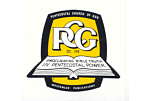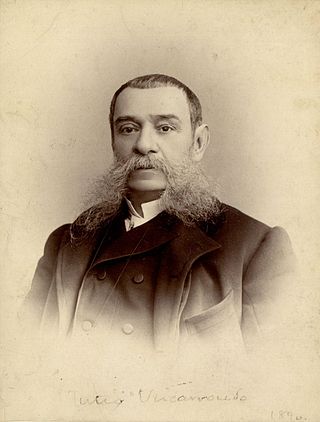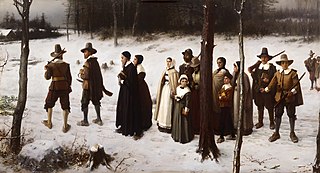Related Research Articles

Puerto Rico, officially the Commonwealth of Puerto Rico, is a Caribbean island and unincorporated territory of the United States with official Commonwealth status. It is located in the northeast Caribbean Sea, approximately 1,000 miles (1,600 km) southeast of Miami, Florida, between the Dominican Republic and the U.S. Virgin Islands, and includes the eponymous main island and several smaller islands, such as Mona, Culebra, and Vieques. It has roughly 3.2 million residents, and its capital and most populous city is San Juan. Spanish and English are the official languages of the executive branch of government, though Spanish predominates.
Pentecostalism or classical Pentecostalism is a Protestant Charismatic Christian movement that emphasizes direct personal experience of God through baptism with the Holy Spirit. The term Pentecostal is derived from Pentecost, an event that commemorates the descent of the Holy Spirit upon the Apostles and other followers of Jesus Christ while they were in Jerusalem celebrating the Feast of Weeks, as described in the Acts of the Apostles.

The World Assemblies of God (AG), officially the World Assemblies of God Fellowship, is an international Pentecostal denomination.

The Pentecostal Church of God (PCG) is a Trinitarian Pentecostal Christian denomination headquartered in Bedford, Texas, United States. As of 2010, there were 620,000 members, 6,750 clergy in 4,825 churches worldwide.

The Inter American University of Puerto Rico is a private Christian university with its main campus in San Germán, Puerto Rico. It also has campuses in Aguadilla, Arecibo, Barranquitas, Bayamón, Fajardo, Guayama, Ponce, and San Juan. The university also has three professional schools: School of Optometry, School of Law, and the School of Aeronautics. The Inter offers academic programs in 11 teaching units. It was founded in San Germán in 1912. The San Germán campus is also the home to the Inter American School, a private co-educational college-preparatory school.
Theological University of the Caribbean formerly known as Biblical and Pentecostal College of Puerto Rico (CBPPR) is a private, Christian, Evangelical, Pentecostal, and coeducational university in Trujillo Alto, Puerto Rico that offers undergraduate and graduate studies in pastoral studies, biblical interpretation, Christian education, and theology. The university is accredited by the Caribbean Evangelical Theological Association (CETA) and The Association for Biblical Higher Education (ABHE).
Juanita García Peraza also known as "Mita" was the founder of the Mita Congregation, a spin-off of the Pentecostal church with Puerto Rican origins which is described in Melton's Encyclopedia of Protestantism. Erik Camayd-Freixas, a sociologist considers this group to be a cult. The group had and still has a large following. When Peraza died, the Senate of Puerto Rico closed their offices for three days in her honor.
Jorge Raschke García is a Pentecostal, Assemblies of God evangelist who is well known for his political opinions as well as for his religious evangelistic events. He is of German (Ashkenazi) and Afro-Caribbean Spanish (Sephardic) descent.
Protestantism in Puerto Rico officially was introduced in 1872 when the first Protestant church in the Anglican tradition was established on the island. Before the islands of Puerto Rico came under United States sovereignty in 1898, Protestantism was suppressed under Roman Catholic Spanish rule.
The Indian Pentecostal Church of God (IPC) is one of the largest Pentecostal Christian Denomination in India, with over 10,000 congregations worldwide. Its organisational headquarters located in Kumbanad, Kerala, India. IPC has similarities with the Kerala Brethren denomination in terms of its beliefs on orthodoxy and eschatology, as a large portion of IPC's founders and early members were from the Kerala Brethren. IPC tends to shy away from ecumenism, and some of its leaders reject high church liturgy as a method of worship, instead opting for low church congregational worship.
German immigration to Puerto Rico began in the early part of the 19th century and continued to increase when German businessmen immigrated and established themselves with their families on the island.
Marta Romero was a Puerto Rican actress and singer, and one of the pioneers in Puerto Rican television.

The Episcopal Church Diocese of Puerto Rico is a diocese of the Episcopal Church in Puerto Rico.

Julio Vizcarrondo Coronado was a Puerto Rican abolitionist, journalist, politician and religious leader. He played an instrumental role in the development and passage of the Moret Law which in 1873 abolished slavery in Puerto Rico. Vizcarrondo was also the founder of the Protestant movement in the Iberian Peninsula in the 19th century.

The Jewish immigration to Puerto Rico began in the 15th century with the arrival of the anusim who accompanied Christopher Columbus on his second voyage. An open Jewish community did not flourish in the colony because Judaism was prohibited by the Spanish Inquisition. However, many migrated to mountainous parts of the island, far from the central power of San Juan, and continued to self-identify as Jews and practice Crypto-Judaism.

Protestantism is the largest grouping of Christians in the United States, with its combined denominations collectively comprising about 43% of the country's population in 2019. Other estimates suggest that 48.5% of the U.S. population is Protestant. Simultaneously, this corresponds to around 20% of the world's total Protestant population. The U.S. contains the largest Protestant population of any country in the world. Baptists comprise about one-third of American Protestants. The Southern Baptist Convention is the largest single Protestant denomination in the U.S., comprising one-tenth of American Protestants. Twelve of the original Thirteen Colonies were Protestant, with only Maryland having a sizable Catholic population due to Lord Baltimore's religious tolerance.
Mizpa Pentecostal University is a theological university located in San Juan, Puerto Rico lead and administrated by the Pentecostal Church of God, International Movement of Puerto Rico Region.
The Caribbean Conference of Churches is a regional ecumenical body with 33 member churches in 34 territories across the Dutch, English, French and Spanish speaking territories of the Caribbean. It was founded in 1973 and is based in Port-of-Spain, Trinidad.
Francisco Olazábal (1886–1937) was a Pentecostal evangelist, who conducted an evangelistic healing ministry and founded the Interdenominational Mexican Council of Christian Churches in 1923, later renamed as Latin American Council of Christian Churches or Concilio Latino Americano de Iglesias Cristianas (CLADIC). Francisco Olazábal committed 30 years to his evangelistic healing ministry. Olazábal held healing campaigns across the United States, Puerto Rico, and Mexico.
References
- ↑ Defenders of the Faith
- ↑ Melton, J. Gordon (ed.) The Encyclopedia of American Religions: Vol. 1. Tarrytown, NY: Triumph Books (1991); Chapter: Pentecostal Family; section: Spanish-Speaking Pentecostals; pg. 280-281.